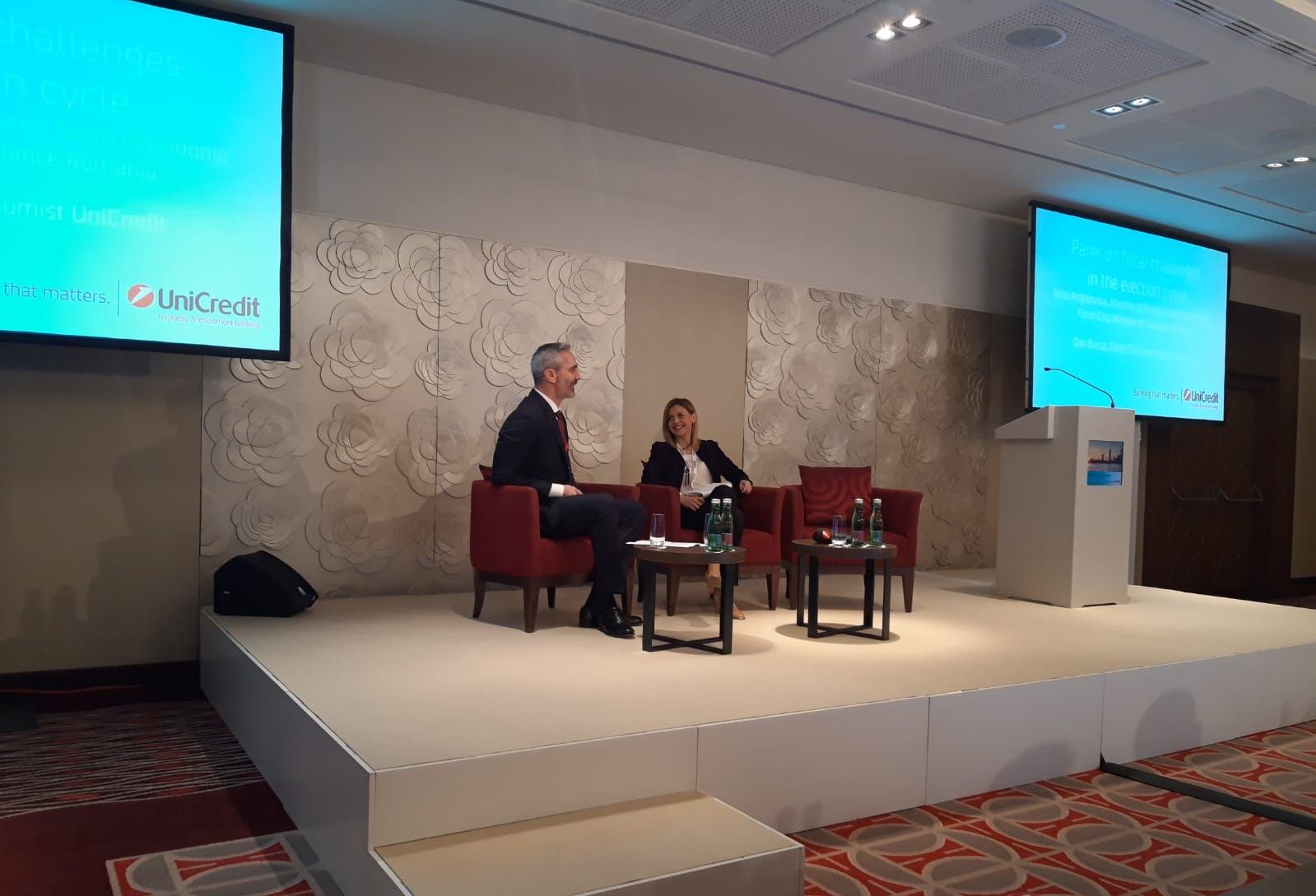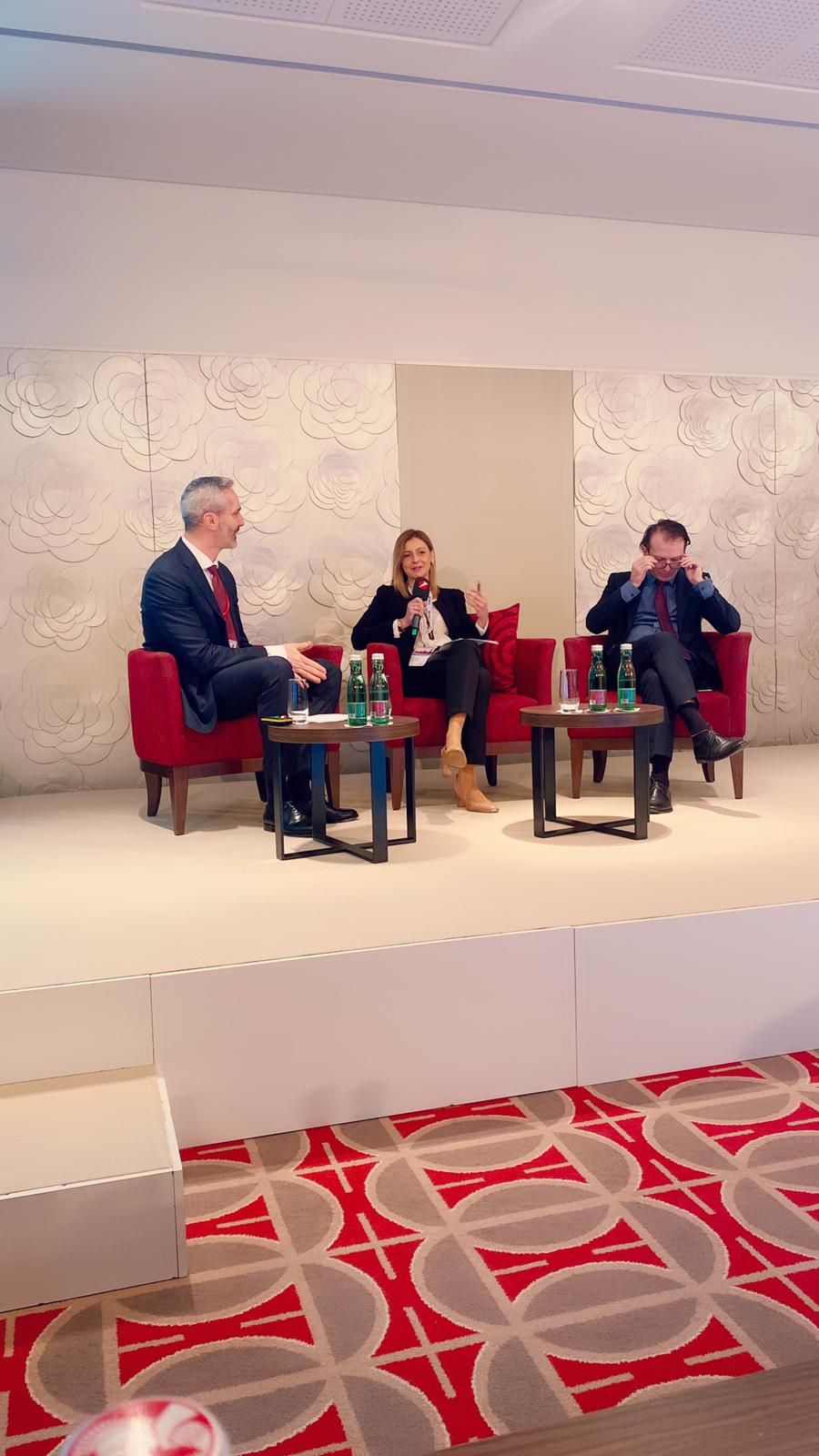16th January 2020, Vienna – By implementing specific measures and policies for suppressing grey economy, as well as incorporating technology into the processes, we are working on improving revenue collection, stated Finance Minister, Nina Angelovska, when asked “How to increase budget revenues”, at a panel discussion at “Emerging Europe Winter Conference” organized by UniCredit, which took place today in Vienna, Austria.

Angelovska pointed out that the Action Plan for Suppression of Grey Economy was rapidly under way, pointing out that by effectively addressing the informal economy, tax collection could be significantly improved – VAT collection alone could potentially increase by 1% to 2% of GDP.
– One way to improve revenue collection is by addressing, literary by “attacking”, the grey economy with specific measures and activities. We are currently developing an Action Plan. Ministry of Labor and Social Policy has prepared Strategy for Suppressing Grey Economy. Ministry of Finance, PRO and Customs Administration also implement certain measures. However, this is key priority and therefore the Ministry of Finance is preparing a special – earmarked action plan. The action plan includes a variety of measures, from inspections and institutional capacity building to soft measures, following the example of MyVAT and MyVAT #MyPrize, which has delivered excellent results. In addition, we are adding a new, special segment, that is tackling grey economy in e-commerce. Another way to mobilize more revenue is by applying technologies to processes. Technologies are solution in the fight against corruption, as well as to increase the efficiency of the tax system and to automate processes, said Angelovska.

The Romanian Finance Minister, Florin Cîţu, and the Chief Economist for UniCredit Central and Eastern Europe, Dan Bucsa, also attended the Panel, at which expectations for economic growth in the countries in the region were discussed. The Minister of Finance pointed out that the Republic of North Macedonia has exceeded the IMF’s growth projections – even though the IMF revised upward its growth projection for the country on two occasions in 2019. She pointed out that the economy is expected to grow by 3.8% this year.
Angelovska said that the performance of capital investments has improved, accounting for 78% of the 2019 projections, while the investment performance of the Public Enterprise for State Roads is 85%.
– Under the 2020 Budget, EUR 385 million is allocated for capital investments, accounting for 3.2% of GDP and 10% of the public expenditures. This is above European targets, i.e. public investment in the European Union accounts for 2.7% of GDP and 6% of the public expenditures. The Public Enterprise for State Roads has allocated additional EUR 195 million for investments in road infrastructure through. Thus, capital investments amount to EUR 580 million – Angelovska said.














